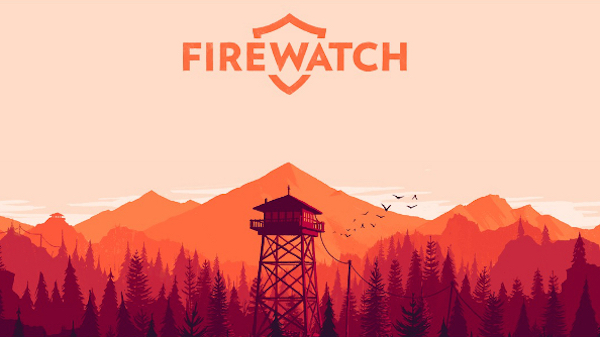Review: Firewatch – Why do we associate escaping into nature with “figuring it all out”?

There is no fire-fighting in this game. Only fire-watching. Respect the restraint.
As an adult male that begrudgingly accepts the label “gamer” — I play them regularly, I follow the latest releases — my favorite movement in games right now is toward shorter, more focused narrative games. Games that steer away from grand adventure and intense action and tell intimate interactive stories. Games that feel like they’re made by adults, and for an adult sensibility; games that don’t require lightning reflexes or hours of dedication to enjoy or excel in. Gone Home, Her Story, SOMA, and The Beginner’s Guide are some of my favorite recent examples, and now currently, Firewatch.
The setup: main character Henry flees a difficult relationship situation to work in a fire lookout tower for the park service in Wyoming. It’s beautiful, isolated, and lonely, but for his boss and eventual friend Delilah on the other end of the handheld radio.
Playing the game consists of exploring your patch of forest, dealing with minor problems (some which later become major ones), and getting to know the woman on the other end of the radio as you do your jobs. There’s some excitement, definitely some mystery and tension, but no fighting, racing, collecting, or puzzle-solving like other games you might play. You can’t die or lose. You can’t even jump.
But it’s moving, it’s human, it’s beautiful both visually (the scenery, lighting and color palettes are spectacular) and emotionally. It feels grown-up, which so few video games manage to do. And at least for me, it made me think about my life and my relationships, which almost no games do. So, based on the big-boy ideas dealt with in Firewatch, two topics for discussion*:
(*saving the others that might spoil surprises in the game)
Henry takes the job as a fire lookout to get away from a tough relationship, needing time to think and sort out his life.
Why do we associate going out into nature with figuring out our lives?
Aside from quiet and lack of distraction, what are we looking for when we “get away from it all”?
Aside from nice landscapes that make good photos, what is the emotional benefit of “natural beauty”?
Henry “meets” Delilah over the radio, and for the rest of the game she’s really your only other point of human contact.